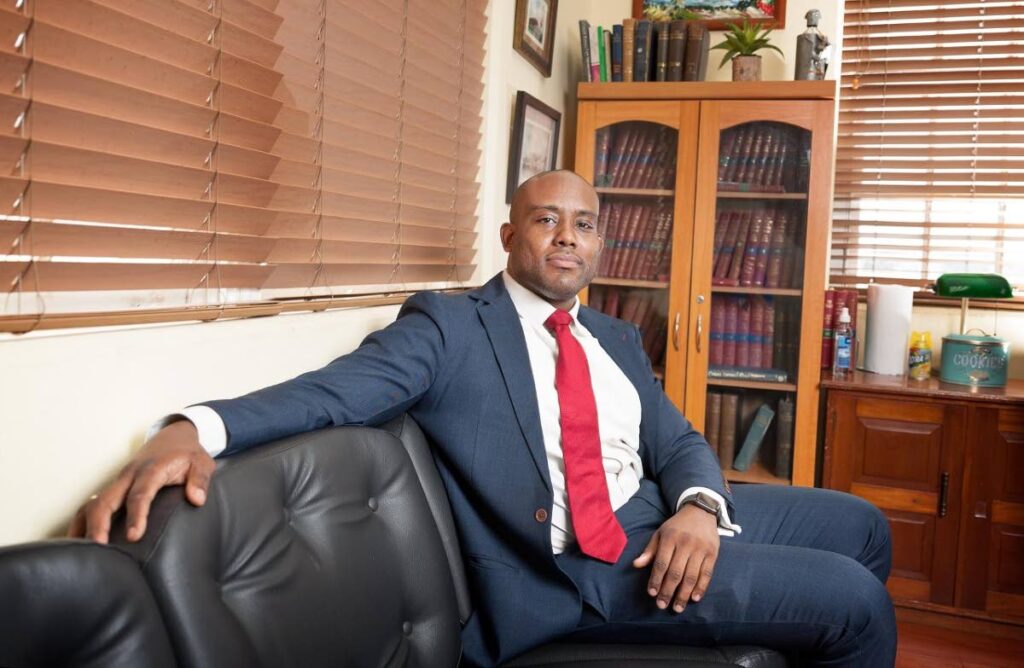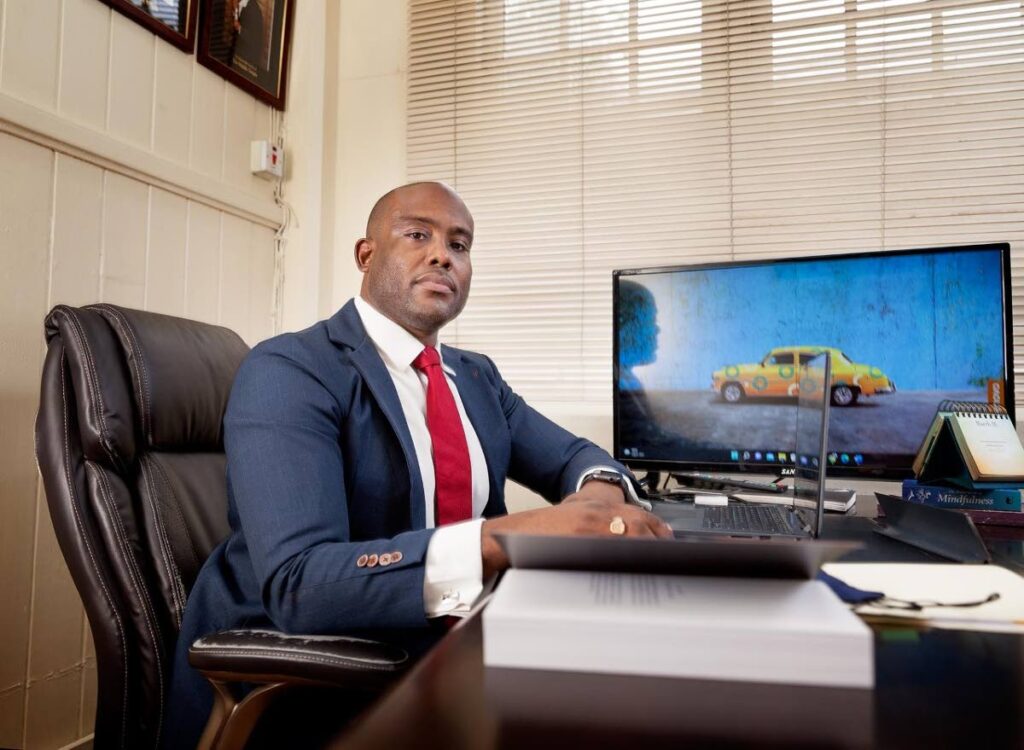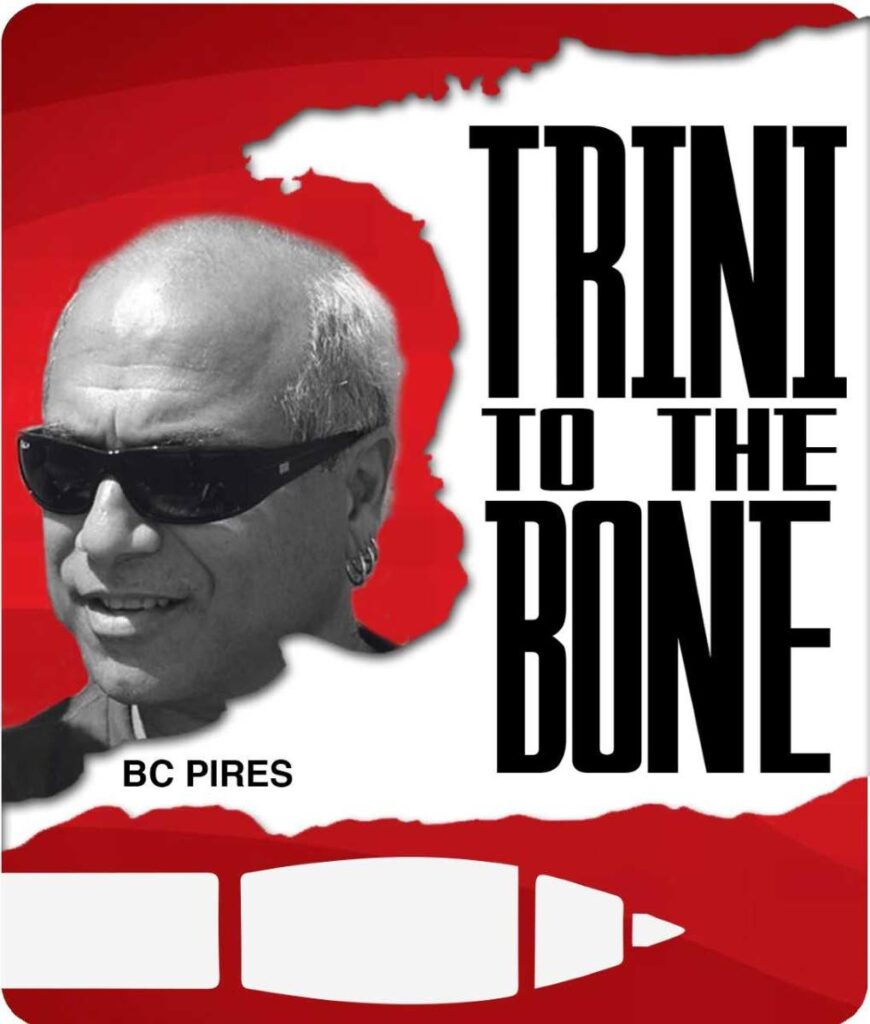Three the hard way

AS TOLD TO BC PIRES
My name is Christopher George and I don’t know why I have to do everything the hard way.
There is definitely a more direct route to everything I’ve done than the one I’ve taken.
My mom lives in Maraval and I came back to Port of Spain when I was around 16 years old, but I would say I am a Santa Cruz boy.
I grew up on Jabari Hill, a residential area, with my younger brother, Matthew, eating Julie mangoes and plums.
Matthew, 18 months my junior, was one year behind me in everything we did: Blackman’s Private School, Queen’s Royal College.
We separated when he did an MBA in Florida and I did chemical engineering at Georgia Institute of Technology.
Matthew is a risk analyst for a big multinational. He was always good with financial strategy, even as a boy. We used to call him Money George.
We didn’t have any money at that age but, somehow, he had a receipt book.
I’d say, “Matthew, I’m hungry.”
And he’d say, “I’ll get you some cereal, Chris, but how much are you paying me for it in the future?”
He used to give me $5 receipts for everything he did for me.
Dealing with my ending of my relationship of maybe five years with my ex-wife over the last two years has been difficult.
But I’m cautiously optimistic about my relationship with Renee, a very energetic piece of my life over the last eight months.
I didn’t appear for myself in my own divorce. It’s that old saying about an attorney who appears for himself having a fool for a client.
I believe in God and I think my faith has been tested.
I went through this roller-coaster ride over my lifetime. Traumatic experiences – losing my father, losing a marriage I thought was important – have actually strengthened my faith.
If BC Pires points out that there were Jews in Auschwitz who believed in God until their last moment in the gas chamber, I reply, “And you had to admire them!”
There’s this juxtaposition with respect to hope and virtue.
I felt a bit of an obligation to do engineering. My dad was critical of himself for doing physics, not mechanical engineering at university. He also wanted to work for an energy multinational.
So it was, like, “Chris, you’re going to finish this off.” I had to achieve my dad’s goals.And I think I was indoctrinated because, when you do well at math, add math, biology, physics, chemistry, engineering is the natural inclination.
I qualified in 2006, became a chartered engineer in 2011, and worked as an engineer for about nine years and did well. I was sent as an expat to Houston, Texas and in 2013 to Aberdeen, Scotland.
I did feel extremely valued. But there was always something else I wanted to do.
My sports journey started in 1994 when I was nine at the Caribbean Islands Swimming Championship in Jamaica.
My friend (national swimmer) George Bovell was in the same team. But I came fourth and missed an individual medal.
I felt I was
almost good enough to achieve the excellence I craved at sports.
I was competitive in regional swimming but water polo was more suited to my personality.
I started playing water polo for Trinidad and Tobago in ’99 and captained the team. We were gearing up to go to the 2010 Pan American Games, the Olympic qualifier for our region, but it was decided we would not be competitive.

- Mark Lyndersay
So that dream was squashed. But I was still keen to compete.
I retired from water polo around 2011. I already had a black belt in shotokan karate when, stationed in Houston in 2011/12, I got my blue belt in jujitsu.
I struggled to win a wrestling tournament at the North American Grappling Association and the coach said I should learn to throw people. So I started judo in 2012.
Within three months, I won our national championship as a yellow belt.
To make the Olympics in judo, I had to become a black belt, which my sensei said could take six or seven years. I had it in my head – although I didn’t tell anybody – Rio de Janeiro in 2016. So I didn’t have seven years.
In 2013, my chemical engineering career started matching my sporting aspirations and I got sent to Aberdeen. Within ten months, against black belts, I came second in the Scottish Open judo competition. I had beaten one guy ranked, like, top 40 in the world.
Ans some friends being trained for the Scottish national judo team were, like, “Chris, you can compete at a high level.”
After winning bronze at the Central American Championship, the TT Olympic Committee and Judo TT saw the possibility of sending me to the Olympics.
I explained to my father I was taking a career break.
He probably thought I was crazy, but he said, “If you need a year and a half to try to fulfil this goal you’ve always had, I’ll support you. Whether in swimming, water polo or now judo, But you need a plan to get back into the world of work.:
I said, “Well, I did that law degree on the side, I’ll go to England and become a barrister at Middle Temple.”
I went to Peru, Argentina, Toronto, London, all the way down to Uruguay, chasing my Olympic dream.
After beating a past Olympic athlete from Curaco in Cuba, I got to the Rio Olympics but I’d picked up an injury and was literally grinding my hip away. The last two months, training 13, 14 times a week, you put on a prideful face, but it was agony.
I was doing physiotherapy to deal with the extreme pain. Mental tenacity and grit got me through.
After Rio, I thought things were going to get easier.
I finally became a barrister in 2017 and thought things would become a little bit easier.
I got married and thought, hear what, it’s smooth sailing now. We’ll move back from England to Trinidad. My ex-wife would start her profession and I would start my practice. Things didn’t go as easily as I thought.
In 2017, to repair the damage I’d done to my body in my Olympic grind. I had a double hip replacement.
I’m literally trying to be “on my legs” as they call it in law…and I literally couldn’t walk!
In 2018, I joined a very prestigious set of old chambers, started in 1931 but, within a year and a half, I realised it wasn’t working.
I thought, “I’m going to do this by myself!”
So I hung up my shingle outside a little room in St Vincent Street.
And then God sends this once-in-a-100-years plague.
I survived 2020 and 2021, divorce, famine and pandemic. And I did it the hard way.
A Georgia Tech professor told me an engineer is what an engineer does, as long as he’s solving problems.
So I consider myself to be a legal engineer. So it’s not that I’m no longer an engineer, it’s just that I’ve added Halsbury’s Statutes of England, as BC Pires suggests. Instead of regulations and codes, I’m looking at the White Book and cases.
A Trini is a person who does it the hard way. A person with an indomitable spirit.
To me, Trinidad and Tobago is this idea of unity which retests and questions itself over and over again. I see great examples of how we come together as a country and of how we are torn apart.
And I feel that, even though we might be just 50.1 per cent in the positive, we are still forging ahead and carving out what it means to be a Trinbagonian.
Read the full version of this feature on Friday evening at www.BCPires.com



Comments
"Three the hard way"